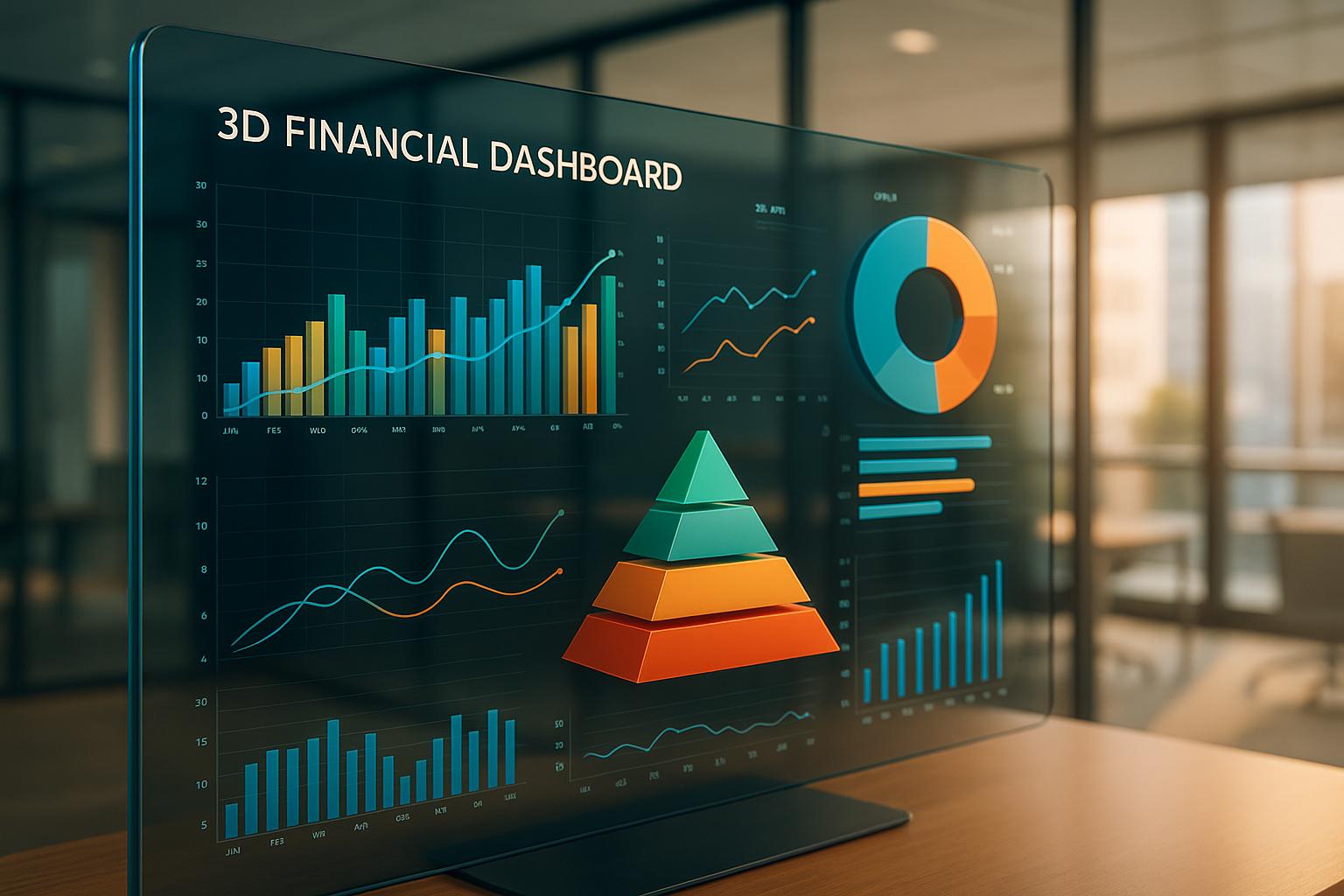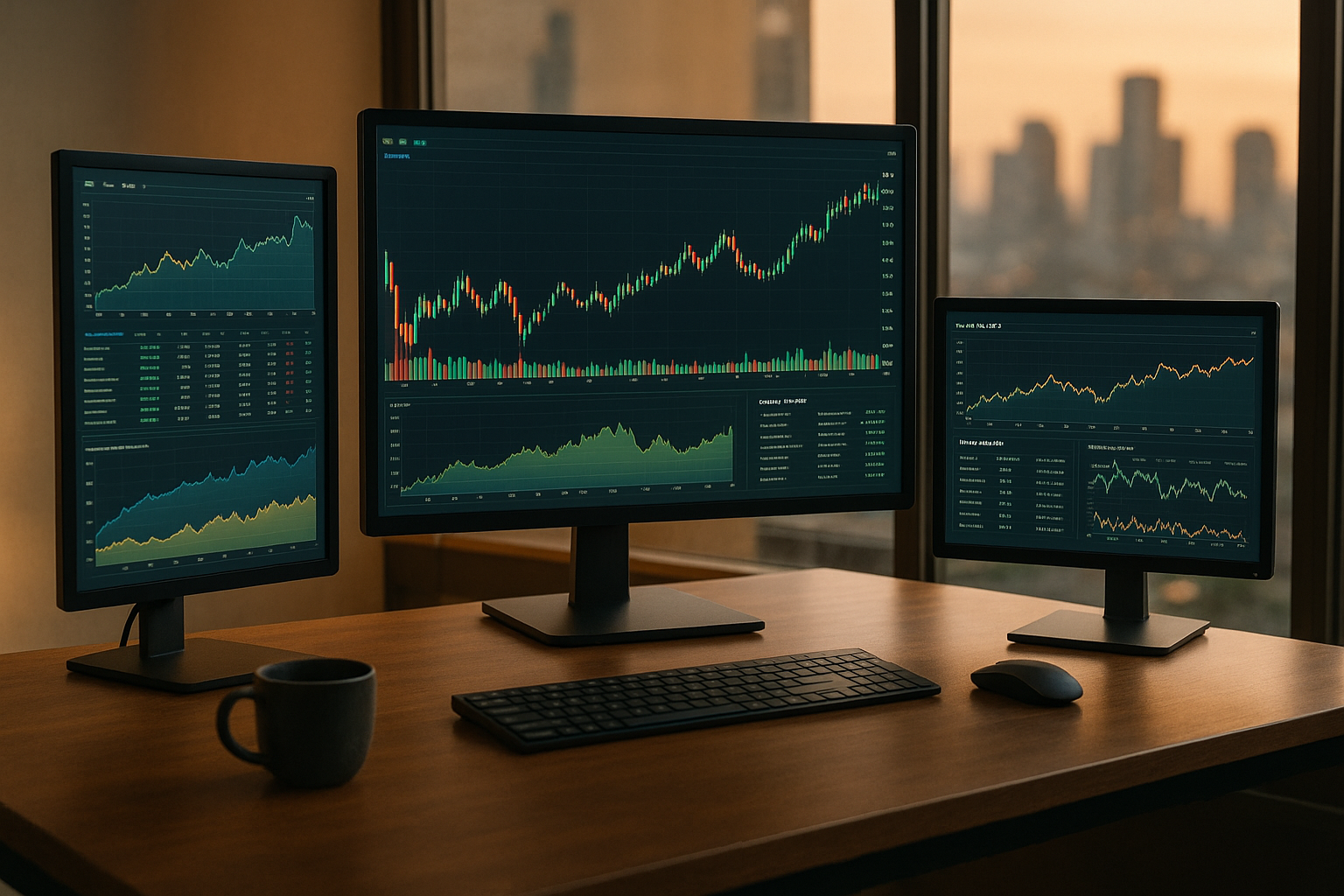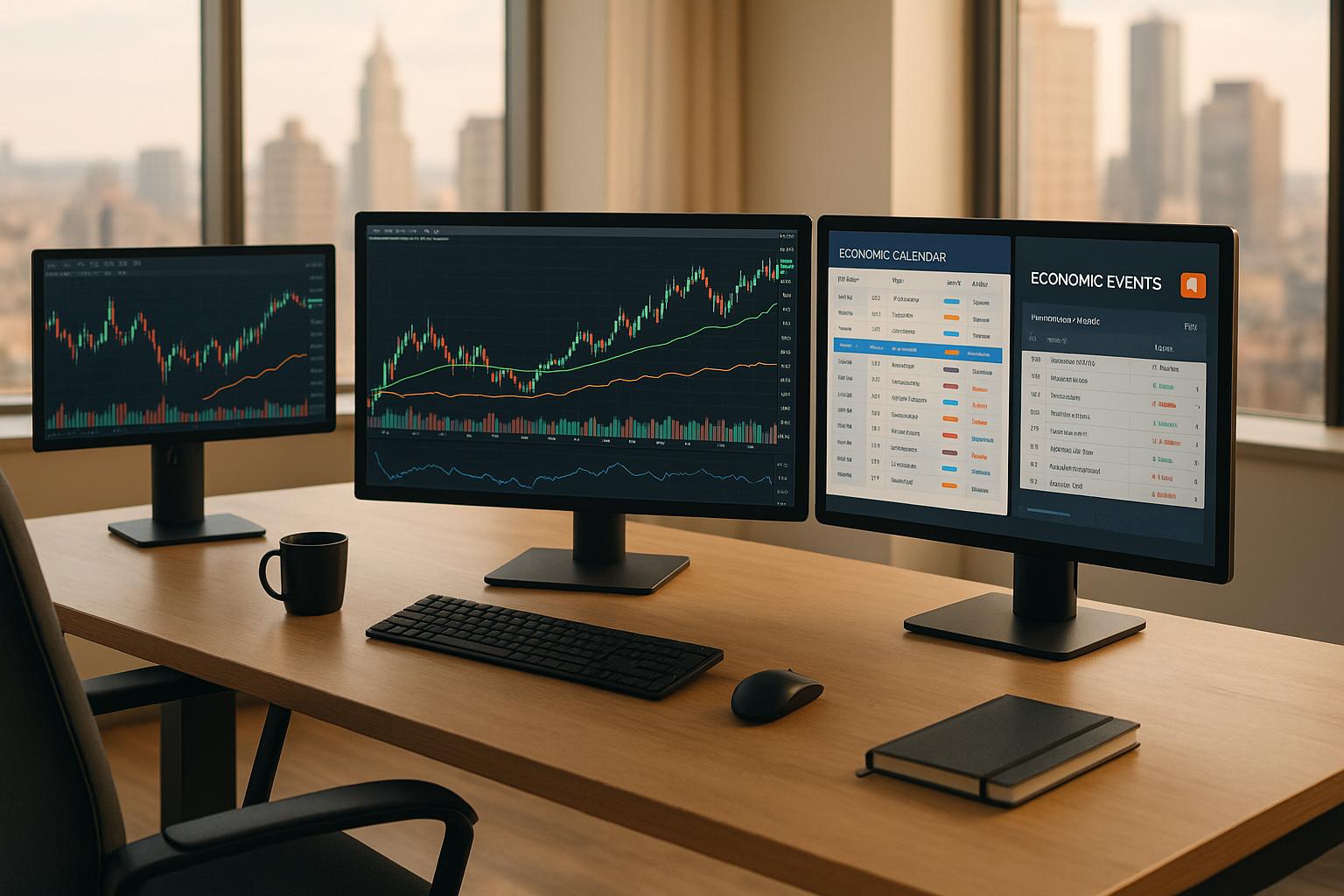Political risk data helps investors and businesses assess political stability and anticipate potential disruptions like conflicts, sanctions, or policy changes. It’s essential for managing risks, refining strategies, and making informed decisions in a volatile global landscape.
Three leading providers dominate this space:
- Fitch Solutions: Offers country-level analysis across 200+ markets, combining macroeconomic and political insights with tools like GeoQuant for real-time predictions.
- Verisk Maplecroft: Focuses on detailed regional risk assessments, covering global conflict zones and integrating political, economic, and human rights dimensions.
- MBI CONIAS: Specializes in conflict monitoring with predictive models to identify risks impacting supply chains and security.
Each provider caters to different needs, from macroeconomic trends to conflict-specific data, making them suitable for diverse investment strategies. Choosing the right provider depends on your priorities, geographic focus, and integration needs.
🎬 REPLAY – WEBINAR: Analysing Political Risks for Business in an Uncertain Geopolitical Landscape
Top Political Risk Data Providers
Specialized providers offer detailed political risk analyses to help investors navigate global uncertainties and disruptions.
Fitch Solutions
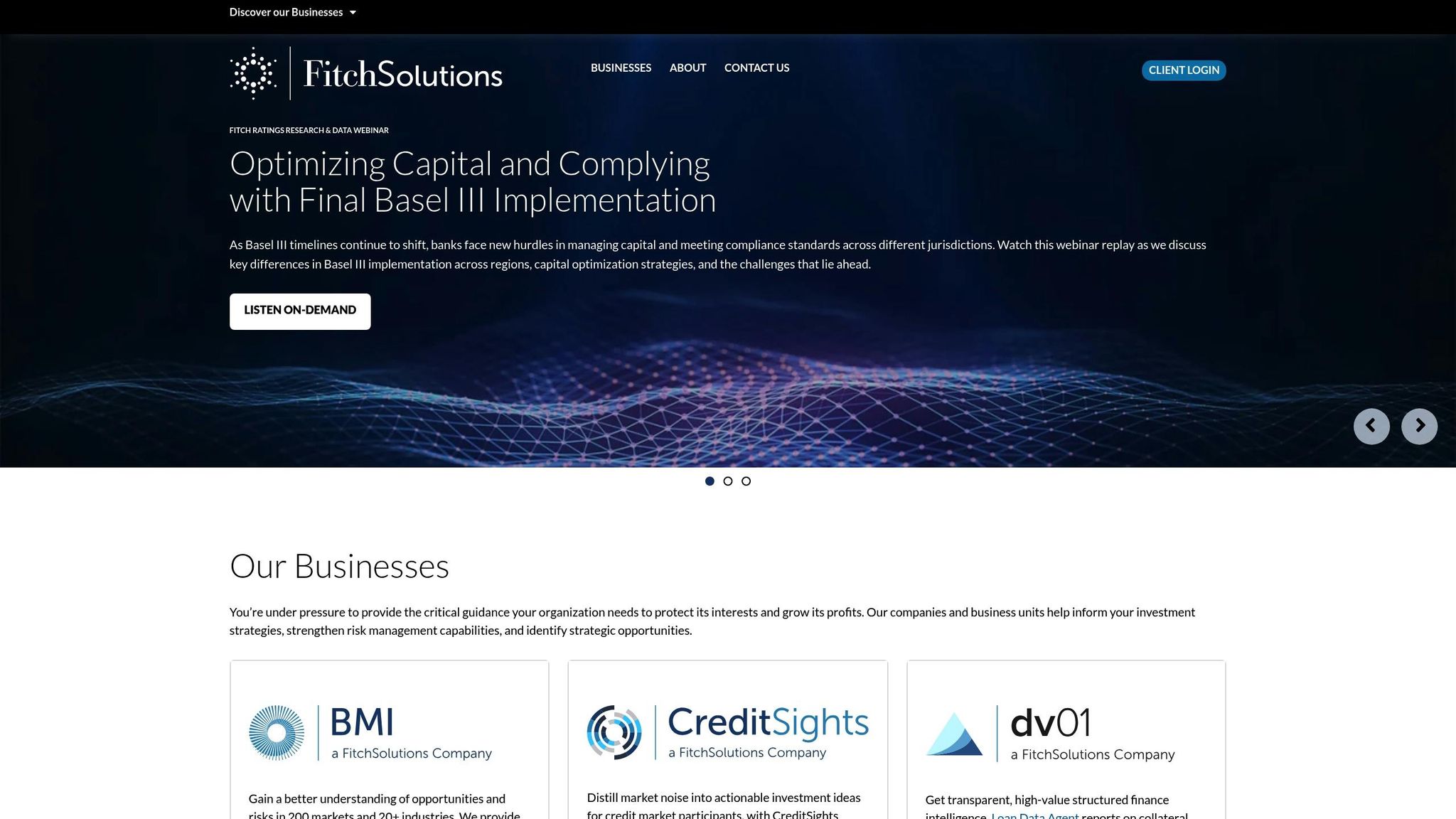
Fitch Solutions delivers in-depth country risk analysis by combining political, macroeconomic, financial, and industry insights. Their BMI Country Risk reports cover over 120 markets, updated quarterly, while the Country Risk Index evaluates risks across more than 200 markets globally. With 40 years of experience, their BMI Political Risk service - enhanced by GeoQuant - provides high-frequency predictive data and real-time insights. One Business Strategy Specialist at a Global Engineering Company shared:
"I'd rate [BMI] best-in-class for reports, country-wide macro reports. This platform is the most well-rounded of those I have used regularly so far."
Verisk Maplecroft
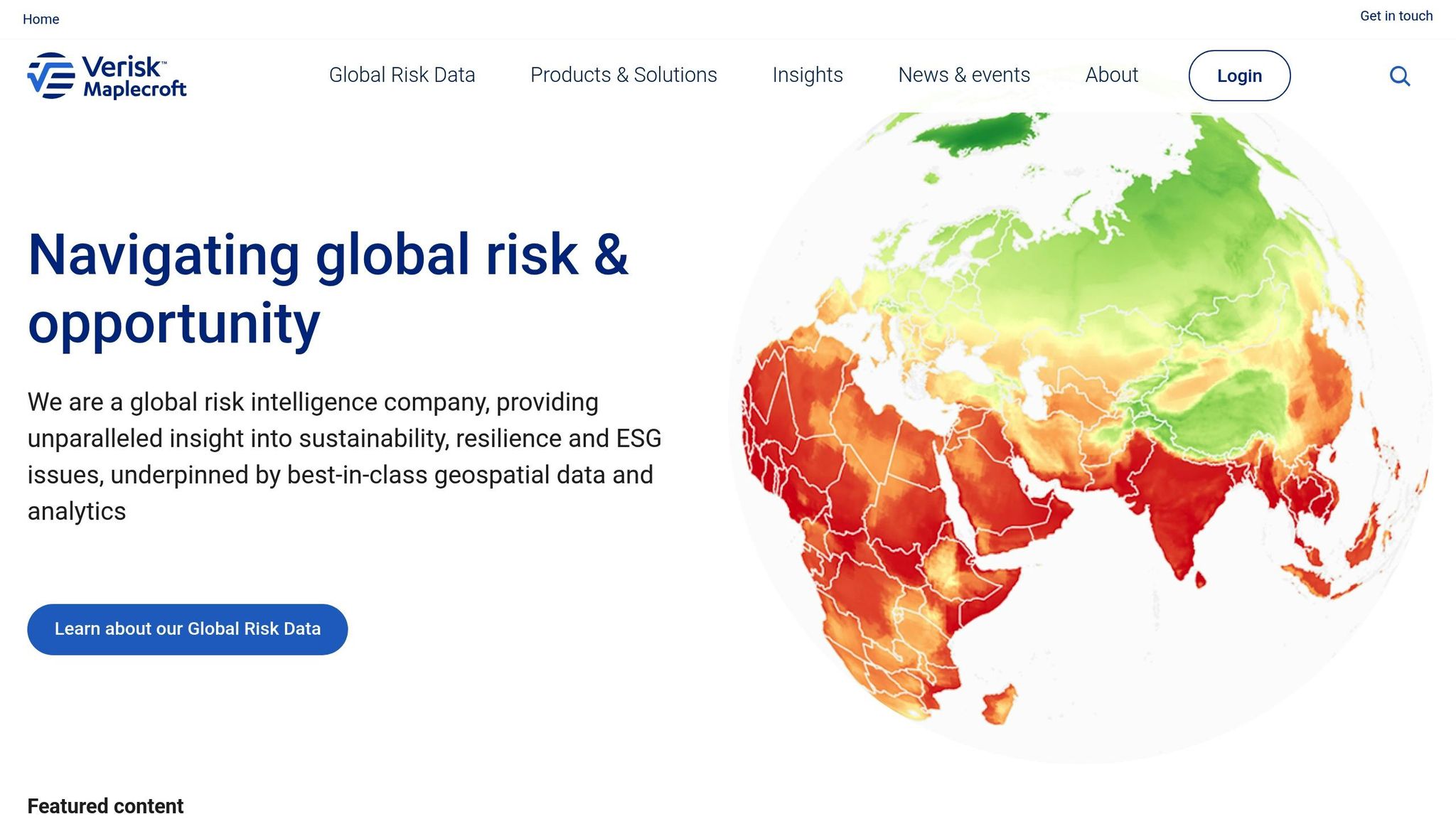
Verisk Maplecroft offers highly detailed, location-specific risk assessments, moving beyond traditional country-level analysis. Recently, they introduced a data solution that evaluates risks for assets linked to over 50,000 publicly traded companies. Their Political Risk Index highlights 99 countries with a sharp increase in risk, including 46 nations facing heightened exposure to regional conflicts since 2021. According to their findings, global conflict zones have expanded by two-thirds, now spanning 6 million square kilometers. By integrating expertise across political, environmental, human rights, and economic dimensions, Verisk Maplecroft provides a holistic view of interconnected risks. In April 2025, they launched a catastrophe model tailored for the U.S. market to quantify risks from political violence, such as strikes, riots, and civil unrest.
MBI CONIAS (Michael Bauer International)
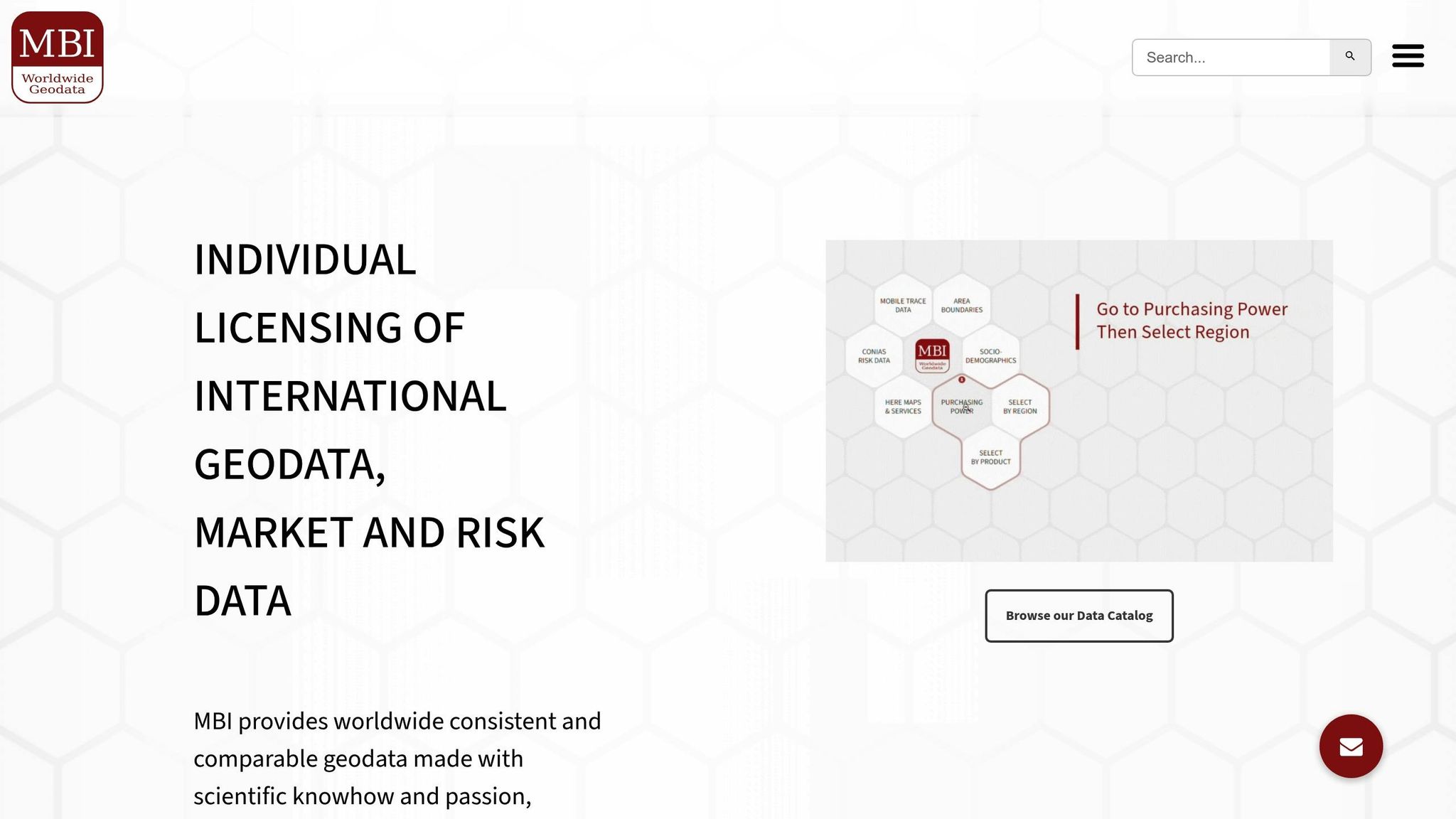
MBI CONIAS specializes in predictive conflict analysis, boasting a forecasting accuracy of over 80%. Their platform provides data-driven insights into current and emerging conflicts, helping clients identify geopolitical risks that could disrupt supply chains. Using a standardized methodology, they offer both historical context and forward-looking projections, enabling investors to factor political risks into their decision-making. As described by MBI Worldwide Geodata:
"With our CONIAS Risk Intelligence data, you can identify political risks for location, logistics, and investment security at an early stage and develop targeted adaptation strategies."
For detailed reviews of these providers and other investment research tools, visit the Best Investing Tools Directory (https://bestinvestingtools.com), a resource designed to help investors compare features and select the tools that align with their needs.
sbb-itb-2e26d5a
Comparison of Political Risk Data Providers
Choosing the right political risk data provider depends on your investment priorities, geographic interests, and how well the data integrates into your existing systems. Each provider has its own strengths, making them suitable for different needs.
Comparison Table
| Provider | Geographic Coverage | Update Frequency | Key Features | Integration Options | Primary Use Cases |
|---|---|---|---|---|---|
| Fitch Solutions (BMI) | 200+ markets | Quarterly reports and real-time insights | GeoQuant AI-powered predictions and 30 years of historical data | API, Excel Add-In, and web platform | Country risk assessment and macroeconomic analysis |
| Verisk Maplecroft | Global | Real-time updates | In-depth regional risk insights | Custom data feeds and web access | General risk monitoring |
| MBI CONIAS | Focused on conflict zones | Continuous monitoring | Conflict monitoring and analysis | Data feeds and custom reporting | Security and conflict risk assessment |
Each provider's approach reflects their focus on specific investment needs. For instance, Fitch Solutions covers over 200 markets with a strong emphasis on country-level analysis, making it ideal for macroeconomic and long-term trend assessments. Meanwhile, Verisk Maplecroft provides global risk insights with a focus on detailed regional analysis, catering to those needing broader coverage. MBI CONIAS stands out for its expertise in conflict zones, tracking emerging threats and security risks.
Integration capabilities are another area where these providers differ. Fitch Solutions offers tools like an API, Excel Add-In, and web platform, making it straightforward to incorporate their data into your existing workflows. Highlighting the importance of such capabilities, Christopher McKee, PhD, CEO & Owner of PRS Group, states:
"Political and country risk analysis becomes truly incomparable when it can be quantified over time and across jurisdictions; when it can yield exceptional empirical findings; and when it can be applied to the behavior and protection of assets."
When it comes to pricing, these providers usually offer customized solutions. For example, Fitch Solutions requires a demo to tailor pricing based on the level of data access and coverage you need. This bespoke approach ensures that institutional clients receive packages that align with their specific requirements.
This comparison highlights the unique strengths of each provider. Fitch Solutions’ 30 years of historical data enables robust risk modeling and long-term analysis, while Verisk Maplecroft and MBI CONIAS cater to different niches, ensuring there’s a solution for diverse investment strategies.
Conclusion
Political risk data plays a crucial role in shaping investment decisions. In fact, 75% of global companies rank political risks among their top five concerns, with 18% reporting significant earnings-impacting losses in 2023 alone. These figures highlight just how important it is to have access to reliable political risk intelligence.
This growing urgency has fueled demand for providers that offer insights tailored to specific investor needs. Among the top platforms - Fitch Solutions, Verisk Maplecroft, and MBI CONIAS - each brings unique strengths to the table. Whether you're looking for in-depth country-level analysis, real-time global risk monitoring, or expertise in conflict zone intelligence, these platforms deliver the data-driven insights needed to safeguard assets and uncover opportunities. Such insights are essential for staying ahead in a rapidly changing landscape.
As Sam Wilkin, Director of Political Risk Analytics at Willis, explains:
"Over eight years, political risk concerns have shifted dramatically. In 2018, political risk was mostly a worry for highly exposed sectors investing in risky countries like Venezuela. Today, political risk concerns apply across sectors, involve a much higher level of potential loss, and are focused on United States policy."
These shifting dynamics emphasize the importance of integrated tools that combine political risk assessments with broader financial resources. A well-rounded investment strategy demands more than just risk analysis - it requires access to comprehensive financial tools. The Best Investing Tools Directory offers research platforms, charting tools, and portfolio solutions that complement political risk assessments, enabling investors to navigate uncertainty with confidence.
FAQs
How can I choose the right political risk data provider for my investment goals?
When choosing a political risk data provider, it's crucial to align your choice with your investment goals and priorities. Pay attention to essential factors such as data accuracy, geographic coverage, update frequency, customization options, and pricing. These elements will help you find a provider that best suits your needs.
Some reputable options to explore include PRS Group's ICRG and Fitch Solutions' BMI Political Risk, both known for delivering detailed insights tailored for investors. Evaluate their features to ensure they meet your requirements, whether you're focused on global markets or specific regions.
What sets Fitch Solutions, Verisk Maplecroft, and MBI CONIAS apart in the political risk data they provide?
Fitch Solutions delivers real-time political risk data and macroeconomic analysis across more than 200 markets. Their insights help businesses grasp country-specific risks and navigate local business environments, making their forecasts a reliable tool for tracking market trends.
Verisk Maplecroft is known for its risk indices and predictive analytics, offering a deep dive into political, environmental, and human rights risks. By incorporating ESG (Environmental, Social, and Governance) intelligence, they provide a comprehensive view of global risk management.
MBI CONIAS focuses on early conflict detection and regional risk analysis, offering detailed, data-driven insights into both current and emerging geopolitical risks. Their strength lies in identifying threats before they develop into larger issues.
How can investors use political risk data to improve their investment strategies?
Investors can use political risk data to gain a clearer picture of risks tied to specific countries, fine-tune their asset allocation strategies, and implement protective measures like political risk insurance. This kind of data provides insight into how geopolitical events could influence markets, helping investors make smarter and more adaptable decisions. By factoring in this information, they can navigate uncertainty more effectively and ensure their portfolios align with their risk appetite and long-term objectives.
